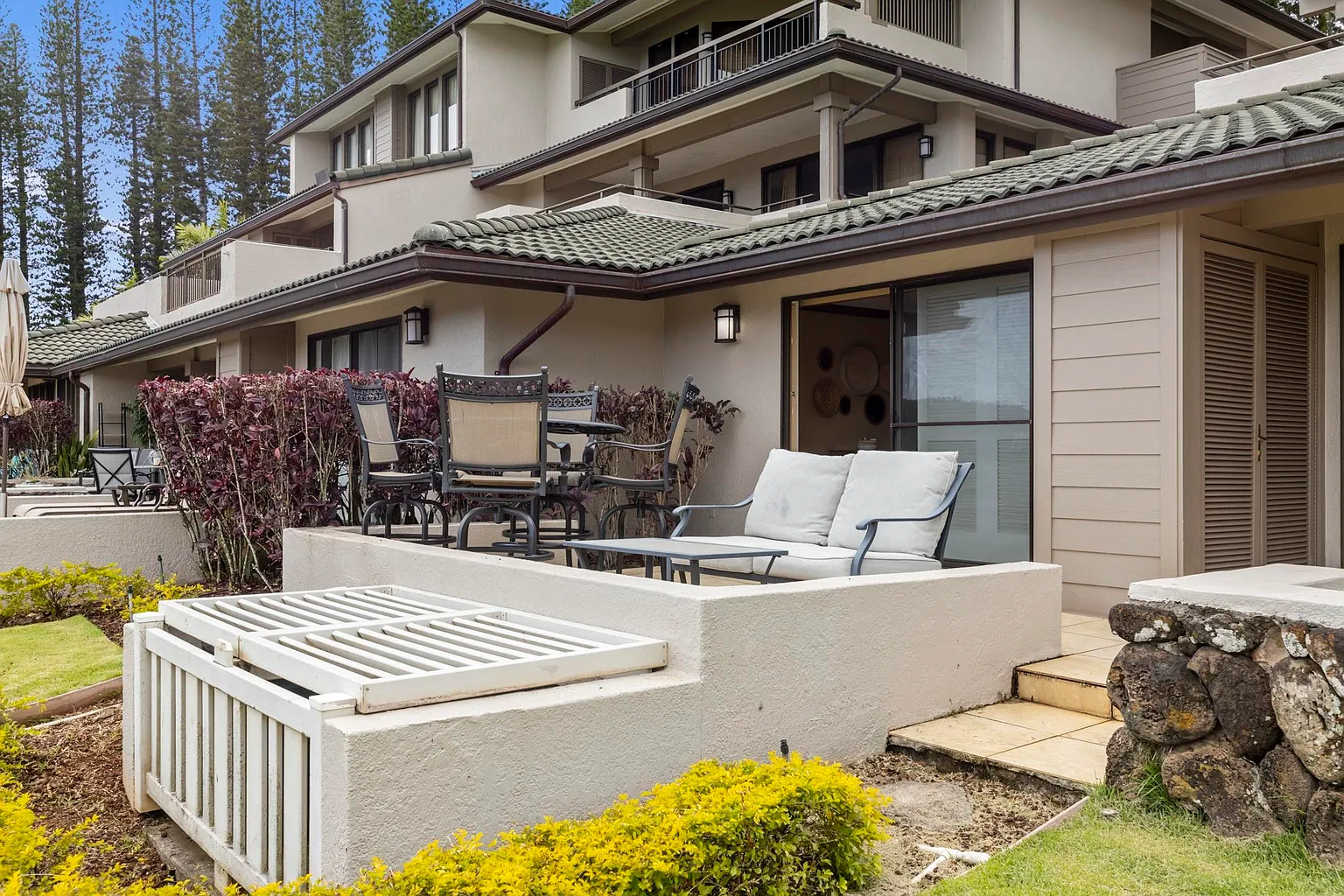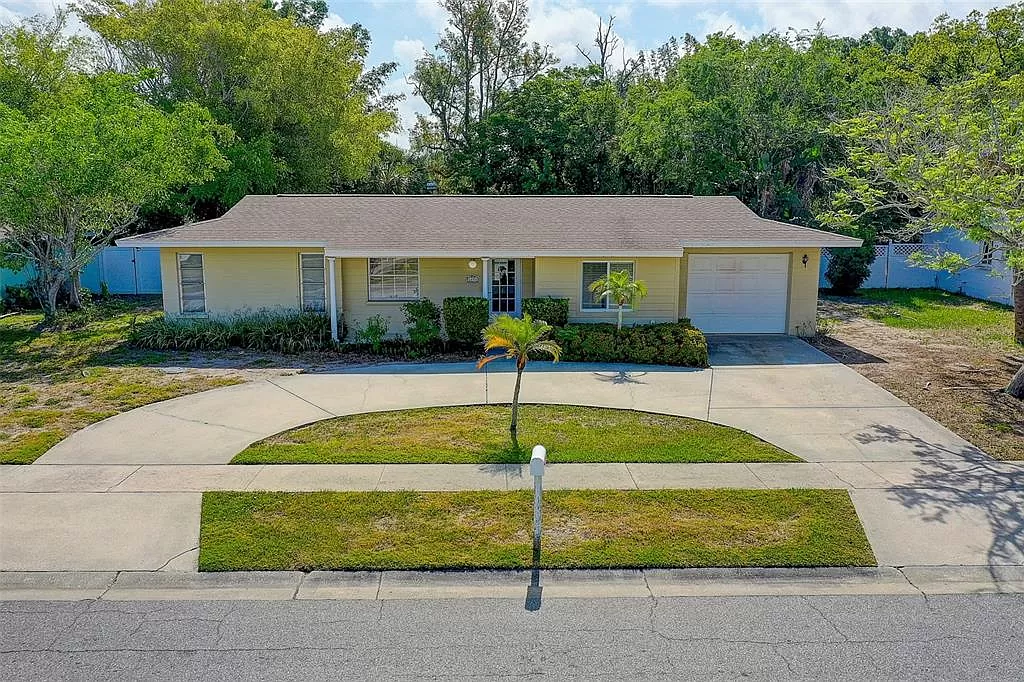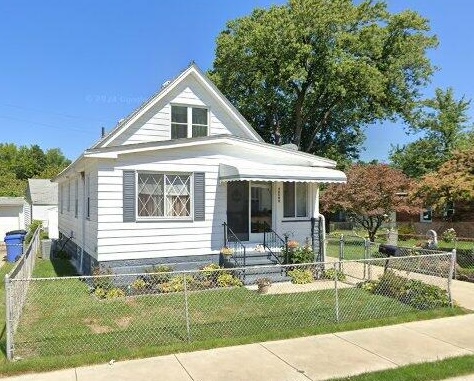Editorial Integrity
Making informed real estate decisions starts with having the right knowledge. At HomeAbroad, we offer US mortgage products for foreign nationals & investors and have a network of 500+ expert HomeAbroad real estate agents to provide the expertise you need. Our content is written by licensed mortgage experts and seasoned real estate agents who share insights from their experience, helping thousands like you. Our strict editorial process ensures you receive reliable and accurate information.
For many non-US residents, buying a home or obtaining a mortgage in the United States is the next step to achieving the American Dream. But with different rules and regulations from country to country, it can be overwhelming to begin.
We understand how important obtaining a mortgage and getting a home is for a non-US resident. This is why to help you put down roots, we have compiled a thorough mortgage for non-US residents guide to help you get a mortgage, even if you lack credit history or are unfamiliar with the US mortgage system.
Fortunately, there are now many lenders who provide home loan programs and mortgage financing for non-US residents that recognize the unique needs of foreign buyers. The homeownership rights are also the same for US citizens and non-US residents, which means you can easily buy a home.
To make sure this happens, let’s get started with this definitive guide to getting a mortgage as a non-US resident!
Table of Contents
Who Qualifies for Non-resident Mortgage?
A non-US resident refers to an individual who’s not a citizen or legal permanent resident of the United States and does not meet the substantial presence test, which determines residency for tax purposes. Two aspects are crucial for determining a Non-US resident:
1) They are in the US on a “temporary” basis
Non-US residents include individuals who are in the country on temporary visas, such as tourists, students, and temporary workers. Non-US residents may also include individuals who maintain permanent residence outside of the US and only spend only a limited amount of time in the country.
2) They are subject to different tax laws
Non-US residents are subject to different tax laws and regulations than US citizens and legal permanent residents. Non-US residents are typically only required to pay taxes on income earned within the United States, while US citizens and legal permanent residents are required to pay taxes on their worldwide income.
Overall, non-US residents are individuals who are not considered residents for tax purposes and do not have the same legal rights and privileges as US citizens and legal permanent residents. They may face different rules and regulations regarding employment, taxes, and immigration status.
Non-US residents also Include Non-Permanent Resident Aliens
The United States has two types of foreign nationals living as non-citizens: Permanent Resident Aliens and Non-Permanent Resident Aliens.
Permanent Resident Aliens hold a green card and a social security number issued by the USCIS, which grants them permanent residency in the US. They qualify for a mortgage, similarly to US citizens, by providing the required documentation, such as a valid green card and social security number.
Non-Permanent Resident Aliens, however, must demonstrate that they plan to utilize the property they are buying as their primary residence. They need to provide their Employment Authorization Document (EAD) and social security number or a valid visa sponsored by their employer. The work eligibility documentation must prove their ability to live and work in the US for at least three years. Additional paperwork may be required based on the situation.
Non-Permanent Resident Aliens are also referred to as Non-US residents. For tax purposes, the significant presence test is used to determine whether a foreign individual is a resident or nonresident of the US.
Is It Possible to Get Mortgages For Non-US Residents?
Yes, it is possible for a non-permanent resident alien to get approved for a mortgage loan. However, the criteria and requirements are quite different from that of an American citizen or permanent resident alien.
There are two types of non-permanent resident aliens in the US. One, with zero US credit, and two, with US credit. Let’s look at the mortgage situations for both:
Non-US Residents Mortgage with No US Credit
It is possible for foreign nationals to get a mortgage in the United States even if they have no US credit. However, it may be more challenging to qualify for a mortgage without a US credit history.
One option is to work with a lender that specializes in providing mortgages to foreign nationals. These lenders often have experience working with clients who have no US credit history and may have alternative ways of assessing creditworthiness, such as examining income and employment history.
Another option is to provide a larger down payment (20-25%) on the property, which can help mitigate the lender’s risk and make you a more attractive borrower. You may also need to provide additional documentation, such as proof of income and assets, and you may need to have a higher credit score in your home country.
It’s important to do your research and compare options from multiple lenders to find the best mortgage for your situation. HomeAbroad has a vast network of mortgage lenders who caters to foreign nationals and non-residents. So, let us connect you with the right non-US resident mortgage lender to get you the best mortgage terms.
Non-US Residents Mortgage with Established US Credit
Non-US residents with established US credit can more smoothly get a mortgage in the United States. However, the process can still be complex compared to permanent residents and may require additional documentation.
Generally speaking, you should expect to make a minimum down payment of 5-20% percent (depending on the lender’s policies). Lenders may also require evidence of a strong credit score, as well as documentation of your current and previous income.
With established US credit, you might be eligible for traditional loan programs like FHA, Freddie Mac, Fannie Mae, etc. You only need to connect with an expert lender who caters to foreign national US residents and can help people on visas get a conventional mortgage with ease.
HomeAbroad can connect you with the best lenders who have experience working with foreign nationals and help people on visas get mortgages hassle-free!
How Residency Impacts a Mortgage
It is important to note that the eligibility criteria for obtaining a home loan heavily depend on one’s residency status. Most borrowers typically fall into one of three categories:
- Permanent residents who have a green card (Form I-551)
- Non-permanent residents who have a valid and eligible work visa (H1B, H2A, H2B, H3, E1, E2, L1, and G1-G4)
- Foreign nationals who have their primary residence outside of the U.S.
- Undocumented Immigrants either entered the U.S. without a visa or remained here after their visa expired.
- Diplomats and other foreign government officials who represent their countries at an embassy or consulate abroad.
Obtaining a home loan is generally easier for individuals in the first category since mortgage giants Fannie Mae and Freddie Mac, who purchase the majority of home loans on the secondary market, have similar guidelines for green card and work visa holders as any other borrower.
But what about others?
As a non-permanent resident alien, you must prove that you will be able to maintain legal residence in the United States for at least 3 years. This means that if you plan on moving back to your home country shortly after purchasing a home, you may not qualify for a mortgage loan.
However, the lender must still verify the legal residency status of the applicant. For foreign nationals, who do not conform to Fannie Mae or Freddie standards, lenders must keep these loans on their books, thereby increasing the bank’s risk and likelihood of requiring a significant down payment.
Additionally, for the people of the second and third categories, lenders may also require you to provide evidence of your current and previous income as well as proof that you have the financial means to pay back a loan.
To ensure that you meet all of these requirements, it is important to work with an experienced real estate professional who can guide you through the process. Use HomeAbroad’s network of expert real estate agents to your advantage!
Non-permanent Resident Alien Work Visa Mortgage
Non-permanent resident alien work visa holders may be eligible for mortgage programs in the United States. However, eligibility and requirements vary depending on the type of visa, length of visa validity, and the lender’s policies.
To be considered for a mortgage, non-permanent resident alien work visa holders must have a valid Social Security number, a reliable source of income, and an established credit history in the US. Lenders may require a higher down payment and proof of employment, such as a letter from the employer stating the terms of employment and the expected duration of the visa.
HomeAbroad specializes in providing US mortgages for foreign nationals, including expats, newcomers, and non-resident investors buying primary residences, second homes, or investment property. Get a quote today!
Challenges Faced by Non-US Residents
In addition to the stricter requirements put forth by lenders, non-US citizens may also face other challenges when seeking a mortgage. These include:
• Difficulty obtaining financing due to lack of credit history or insufficient income
• Challenges related to language barriers between borrowers and loan officers
• Difficulty verifying the source of funds for the down payment
• Lack of understanding of US mortgage terms, regulations, and paperwork
• Longer processing times due to additional documentation requirements
How to navigate through the mortgage process?
Though navigating the mortgage process as a non-US resident can be complex, it is possible. The first step is to find an expert lender who is familiar with the regulations and requirements that apply to non-US residents.
Once you’ve found a lender, they will help you understand the specific documentation that they require in order to process your loan application. Examples of this include evidence of income, proof of legal residence, and employment verification documents.
Once you have all the necessary paperwork in order, your lender will then be able to review and approve your loan application. It is important to note that obtaining a mortgage loan as a non-US resident can take longer than usual due to additional documentation requirements.
Mortgage Requirements for Non-US Residents
The mortgage requirements for non-US citizens can vary depending on the mortgage type and the lender. However, some common basic requirements include:
- Proof of income: Non-US citizens must provide proof of income, such as bank statements, tax returns, or pay stubs, to demonstrate their ability to repay the mortgage.
- Down payment: Lenders often require a larger down payment from non-US citizens to mitigate the risk of lending to a borrower who may not have a US credit history or social security number. The down payment can range from 20-25% of the purchase price.
- Valid visa: Non-US citizens must have a valid visa to qualify for a mortgage. Some lenders may require a visa that is valid for at least three years.
- Credit history: While some lenders may be willing to work with non-US citizens who do not have a US credit history, having a good credit score might increase the chances of being approved for a mortgage.
- Employment history: Non-US citizens must provide proof of employment history, such as a letter from their employer or pay stubs, to demonstrate their ability to repay the mortgage.
- Property appraisal: Lenders typically require a property appraisal to determine the value of the property and ensure that it is adequate collateral for the mortgage.
- Title search: A title search is conducted to ensure that there are no liens or legal issues associated with the property that could impact the lender’s ability to foreclose on the property in the event of a default.
These are some basic and common mortgage requirements for non-US citizens.
Ready to apply? HomeAbroad provides foreign national mortgage programs with no US credit history, and you can contact us for a quick quote and preapproval.

Pre-qualify for a US mortgage as an international buyer.
No US credit history needed.
Opt for Foreign National Mortgage (No US Credit History Required)
According to the NAR report on International transactions in U.S. residential Real estate, in 2022, 60% of non-resident foreign buyers made cash purchases. Meanwhile, 66% of U.S. newcomers on non-immigrant visas used a U.S. mortgage to finance their home, often waiting for two or more years to establish U.S. credit history.
This lack of knowledge about financing options for foreign national buyers without an established U.S. credit history could be a contributing factor to the delay in Non-US residents purchasing a home and the reason for non-resident buyers to opt for all-cash purchases.
This is where a Foreign National Mortgage loan can come to your aid!
Foreign national mortgage loans are designed for individuals who aren’t citizens of the United States but wish to purchase property there. While foreign nationals are eligible for availing traditional mortgage loans, they may struggle to qualify because of their lack of a U.S. credit history and income.
Consequently, foreign national mortgage loans usually require a larger down payment and have higher interest rates. Nevertheless, they remain an excellent option for foreign nationals looking to invest in U.S. property.
How can Non-US residents get foreign national mortgages?
Non-US residents can obtain a mortgage through foreign national lending programs, even without a Social Security number, green card, or visa. Borrowers aren’t required to have a FICO score to prove their creditworthiness. Instead, they can provide evidence of their creditworthiness through alternative methods or submit credit reports from their home country.
Loans for non-US residents are usually referred to as ITIN loans or loans to non-permanent resident aliens. These loan programs enable non-citizens to buy real estate in the United States, even if they lack the usual documentation needed to obtain a mortgage.
Foreign national mortgages provide borrowers with a range of benefits:
Some of the main advantages include:
- Ability to finance homes and investment properties
- Option to obtain loans up to $5 million
- Ability to finance condominiums without warranties
- Offer low debt service ratio loans for investment properties and allow for endless cash-out
- Borrowers do not need to have a U.S. FICO score but must provide evidence of three active and open trade lines with a two-year history
HomeAbroad can connect you with professionals who can smoothen the process of getting a foreign national mortgage and help you on your home-buying journey.
Mortgages Options For Non-US Residents
There are a variety of mortgage options for non-US citizens. These include:
For Non-US Residents with Zero US Credit:
Non-US residents with no US credit have various mortgage programs to choose from:
1) Foreign National Loans
Some lenders specialize in providing loans to foreign nationals, which may have more flexible credit and documentation requirements. However, these loans may have higher interest rates and fees.
2) Cash Purchases
If you have the financial means, you may be able to purchase a property in cash, which means you do not need to obtain a mortgage. This can be an attractive option for foreign nationals who do not have a US credit history.
3) Private Lenders
Some private lenders may be willing to work with foreign nationals who have no US credit. They may require a higher down payment, a larger cash reserve, or other compensating factors to offset the lack of US credit history.
4) Non-Traditional Financing
Some lenders may offer non-traditional financing options such as seller financing, lease-to-own agreements, or other creative financing solutions that do not require a US credit history.
5) Co-Signer (Joint Mortgage)
Another option may be to obtain a mortgage with a US citizen or permanent resident co-signer who has an established US credit history. This can help to offset the lack of US credit history for the foreign national borrower.
6) Non-Qualified Mortgage
Non-qualified mortgages (non-QM) are tailored to meet the needs of borrowers who do not fit traditional lending requirements. These programs may provide financing options to non-U.S. citizens and are often more flexible in terms of documentation, credit score requirements, and other factors.
For Non-US Residents with Established US Credit:
Some of the mortgage options for foreign nationals with US credit may include:
1) Conventional Mortgages
Conventional mortgages are offered by private lenders and are not guaranteed or insured by the government. These mortgages may offer competitive interest rates and flexible terms and may require a lower down payment if the foreign national has a good credit history in the US.
2) Government-Backed Mortgages
Foreign nationals with established US credit may also qualify for government-backed mortgages such as FHA loans, VA loans, or USDA loans. These programs may offer more flexible credit and income requirements and may require a lower down payment.
3) Non-Resident Mortgages
Some lenders offer non-resident mortgage programs that are specifically designed for foreign nationals with established US credit. These mortgages may have higher interest rates and require larger down payments (20-25%), but they may offer more flexible credit requirements.
4) Portfolio Loans
Portfolio loans are offered by some lenders and are not sold to Fannie Mae or Freddie Mac. These loans may offer more flexible underwriting requirements and may be a good option for foreign nationals who do not meet the stricter requirements of conventional mortgages.
5) Jumbo Mortgages
Jumbo mortgages are conventional mortgages that exceed the loan limits set by Freddie Mac and Fannie Mae. Foreign nationals with established US credit may be able to qualify for jumbo mortgages if they have a high credit score, substantial assets, and a strong employment history.
It’s important to note that these programs may have different requirements and qualifications, so it’s vital to research and compare each program before deciding which one is right for you.
Additionally, it’s important to work with a mortgage professional who has experience working with non-US citizens and foreign investors to navigate the process. HomeAbroad can come to your aid by connecting you with mortgage lenders who have expertise in working with foreign nationals.
Step-by-Step Process to Obtain Mortgages for Non-US Residents
The process for obtaining a mortgage loan in the US as a Non-US resident is as follows:
Step 1: Estimate your budget
Determine how much you can afford as your maximum monthly payment, which includes your mortgage principal and interest, property taxes, homeowner’s association dues, and homeowner’s insurance premiums.
Step 2: Obtain mortgage pre-approval
Work with a lender that specializes in working with foreign nationals and takes into account non-traditional credit data points, such as credit history outside the US. This pre-approval will give you an idea of how much you can borrow.
HomeAbroad provides foreign national mortgage programs with no US credit history, and you can contact us for a quick quote and preapproval.
Step 3: Prepare your documents
You will need to provide identification verification, income statements, and evidence of assets. International clients will need to provide additional documentation, such as a copy of their passport and a valid US visa.
Step 4: Shop for your home and make an offer
Work with a real estate agent who is experienced in international real estate transactions to help you find the perfect property. Once you’ve selected a property, draft an agreement with the help of your agent that includes an earnest money deposit.
Step 5: Finalize your mortgage loan application
Choose the type of mortgage, compare rates, decide on the down payment amount, and choose a term length. Then complete your paperwork.
By following these steps, Non-US residents can successfully obtain a mortgage loan in the US.
How to Improve Your Chances for US Mortgage Approval as a Non-US Resident
As a non-US citizen, getting a mortgage in the United States may look complex but it can actually be a very smooth process. Here are some handy tips to improve your chances of getting approved for a US mortgage:
- Have a substantial down payment: Putting down a larger down payment (20-25%) can show lenders that you are serious about the investment and can improve your chances of getting approved.
- Provide detailed documentation: Non-US citizens should be prepared to provide detailed documentation, including a valid passport, visa, work permit, and proof of income.
- Work with a lender who has experience with foreign nationals: Look for lenders who have experience working with non-US citizens. They will be familiar with the unique requirements and can help guide you through the process.
- Consider a co-signer: If you have a friend or family member who is a US citizen, they can co-sign the mortgage with you. This can help to improve your chances of getting approved, especially if you have a good credit score and financial standing.
- Be patient: The mortgage process can take time, especially for non-US citizens. Be patient and work with your lender to ensure that all the necessary documentation is submitted and that you meet all the requirements.
- Consider alternative options: If you are having trouble getting approved for a traditional mortgage, consider alternative options like foreign national mortgage loans, private lenders, mortgage brokers, or seller financing.
By following these tips, you can increase your chances of getting approved for a US mortgage as a non-US citizen.
Conclusion
Obtaining a mortgage loan in the US as a Non-US citizen is possible if you are prepared with the right knowledge. The process requires patience and research, but there are lenders who specialize in working with foreign nationals that can help simplify the process.
By following these steps, preparing all the documentation, and considering alternative financing options, you can increase your chances of getting approved. Good luck with your home-buying journey!
Frequently Asked Questions
What is the US mortgage rate for foreigners?
A. The US mortgage rate for foreign nationals varies depending on the type of loan you choose. Rates can range anywhere from 3% to 7%. You should always shop around and compare rates to ensure that you are getting the best deal.
Can I get a mortgage while waiting for a green card?
A. Yes, you can get a mortgage even if you are still waiting for your green card. However, you will need to provide additional documentation, such as a valid passport and visa or work permit.
What is the minimum down payment for foreign buyers?
A. The minimum down payment for foreign nationals in the US is typically 20-25%.
Can a foreigner get a mortgage in the US?
A. Yes, a foreigner can get a mortgage in the US. However, you may need to provide additional documentation, such as a valid passport and visa or work permit. You should also be prepared to put down a larger down payment of 20% and shop around for the best rates.
How long do I need to live in the US to get a mortgage?
A. The length of time that you need to live in the US to get a mortgage varies depending on the lender. In some cases, a foreigner may be able to qualify for a mortgage with as little as six months of residence in the US. However, most lenders will usually require at least two years of residence before approving a loan.
Can a non-permanent resident get a conventional mortgage?
A. Yes, non-permanent residents can get a conventional mortgage. The requirements might be a little different, like you may need to provide extra documentation or a larger down payment.
Can I get a mortgage without a green card?
A. Yes, you can get a mortgage without a green card. Residents without a green card have a process highly similar to permanent residents and citizens for getting a mortgage. However, some programs may request additional documents, such as proof from a country of residence for example.
Can I use an international bank account for a mortgage?
A. It is possible to use an international bank account for a mortgage, but it may be more challenging to do so. Most lenders prefer borrowers to have a U.S. bank account, as it provides a more convenient and reliable means of payment. However, some lenders may accept international bank accounts, provided that the account is in good standing and meets their specific requirements. It is best to speak directly with lenders and inquire about their policies on international bank accounts.
Does immigration status affect mortgage?
A. Your immigration status can affect your ability to get a mortgage. Lenders may require additional documentation, such as a valid passport and visa or work permit, in order to determine your eligibility. Additionally, some lenders may be hesitant to issue loans to non-permanent residents since their time in the US is limited. It is best to speak directly with lenders and inquire about their policies on foreign nationals.
Can you get FHA without a green card?
A. Yes, you can get an FHA loan without a green card. However, you may need to provide additional documentation, such as a valid passport and visa or work permit. You should also be prepared to put down a larger down payment and shop around for the best rates.
What are FHA guidelines for non-permanent resident aliens?
A. The FHA loan guidelines for non-permanent resident aliens require that the borrower must have a valid Social Security number and meet their minimum credit score requirement. Additionally, they must provide an original or certified copy of their valid passport and visa, evidence of any applicable work permits, and documentation to verify their employment. Borrowers are also required to put down a minimum of 3.5% for the down payment and maintain housing payments for at least 12 months prior to applying for an FHA loan.
What is a foreign national loan?
A. A foreign national loan is a type of mortgage designed for borrowers who are not U.S. citizens or permanent residents, such as students, temporary workers, and investors from abroad. These loans usually require larger down payments and may also have stricter credit score requirements than conventional mortgages. Additionally, some lenders may require additional documentation to verify the borrower’s immigration status.
Can I buy a house if I’m not a U.S. citizen?
A. Yes, you can purchase a house even if you are not a U.S. citizen. However, it may be more challenging to do so since lenders require additional documentation, such as a valid passport and visa or work permit. You should also be prepared to put down a larger down payment and shop around for the best rates. Additionally, foreign nationals may be subject to stricter credit score requirements than U.S. citizens, so it is important to research the different loan options available.
Can you get a mortgage if you are on a visa?
A. Yes, it is possible to get a mortgage if you are on a visa. However, you will need to provide additional documentation (work permits, visa, other proofs, etc). Non-permanent residents’ stay (for example, those on a visa) in the US is uncertain. Hence some lenders could be reluctant to grant them loans. Also, you should be prepared to shop around for the best rates and make a higher down payment. It is recommended to immediately approach lenders and find out about their foreign national policy.
Can a non-resident alien get a mortgage?
A. Yes, non-resident aliens can get a mortgage in the US. However, some lenders may be hesitant to issue loans to non-permanent residents since their time in the US is limited. You should also be prepared to put down a larger down payment of 20% and shop around for the best rates. It is best to speak directly with lenders and inquire about their policies on foreign nationals.
Can a non-permanent resident get an FHA loan?
A. Non-permanent residents can, in fact, apply for an FHA loan. A valid passport, visa, or work permit may be required in addition to the usual paperwork. In addition, be ready to look around for the best rates and make a higher down payment of 20-25%. It’s also vital to investigate the various loan possibilities because foreign nationals can be subject to tougher credit score criteria than Americans.


![Mortgages For Non-US Residents: A Definitive Guide [Updated 2026]](https://homeabroadinc.com/wp-content/uploads/2023/02/Mortgage-For-Non-US-Residents-500x343.jpg)
















